Middle East
Know their Names: The Gaza Red Crescent paramedics Israel attacked | Israel-Palestine conflict News
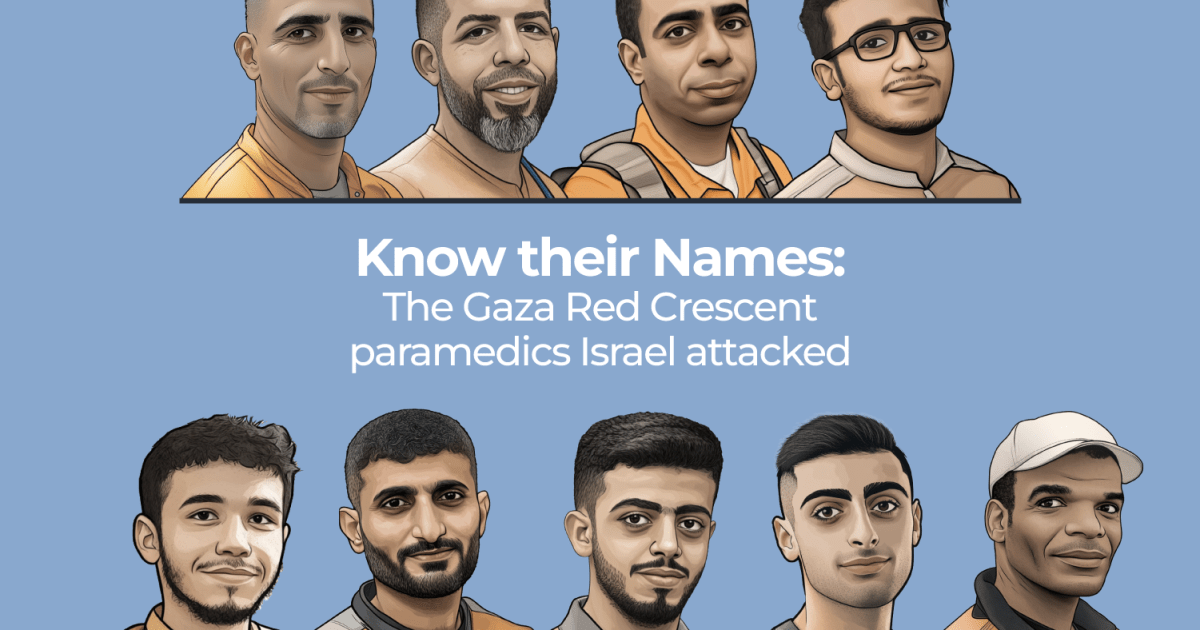
Refaat Radwan recorded his last mission and his own final breaths.
He was filming from the third ambulance in a convoy, which included a fire truck, that had gone out to find a Palestine Red Crescent Society (PRCS) ambulance that had lost contact with its base.
All the vehicles in the convoy were clearly marked, with emergency lights flashing.
In the video, the crew members see the missing ambulance by the side of the road and approach, muttering prayers for their colleagues’ safety.
Then a voice says: “They’re scattered on the ground! Look, look!” and Refaat runs out of his ambulance with other medics to check on the fallen aid workers.
Then the sound of bullets rings out as Israeli soldiers shoot at uniformed medics who were running to assist the medics they had already killed. Refaat was hit.
In his final moments, he prayed and called repeatedly to his mother to forgive him – for choosing the path of a paramedic, putting himself in harm’s way.
Israeli soldiers killed eight PRCS workers that night, as well as six workers from the Palestinian Civil Defence who had gone out on the same mission.
A ninth paramedic, Assaad al-Nassasra, was captured.

Here are the Red Crescent medics Israel ambushed that day, through the eyes of the people who loved them:
The quiet one: Ashraf Abu Labda
With his glasses and serious face, Ashraf was always a reassuring presence for his colleagues.
The 32-year-old medic had started volunteering with the PRCS in 2021.
He quickly integrated into the PRCS community, making sure that all his colleagues had a meal for iftar during Ramadan. He would either cook it himself at the Red Crescent centre or bring some of his family’s food from home to share.
In September 2023, he got married, and one month later, Israel launched its genocidal war on Gaza.
When he was killed, he left behind his wife and their two-month-old baby girl, Wiam.

The family man: Ezzeddin Shaath
Ezzeddin was 51 when Israeli soldiers killed him, and a father to six children.
The dedicated family man had a great sense of humour, but the war on Gaza stripped that away from him as he gradually stopped laughing.
He joined the PRCS in 2000, and four years later, he married Nivine, with whom he had four boys and two girls.
At work, he remained a sort of caregiver, making sure his colleagues got at least a little rest every night and something to eat.
His motto about rescue work was: “If it is written, we’ll make it back [from a mission], and if we don’t make it back, that’s our destiny,” his colleague Ibrahim Abu al-Kass told Al Jazeera.

The miracle worker: Mohamed Bahloul
A seven-year veteran of the Red Crescent, 36-year-old Mohamed loved his work, as any of his colleagues would tell you.
During crises, he would stay at the Red Crescent centre, only going home to see his wife and six children once a week.
His children ranged in age from three months to 11 years old at the time Israel killed Mohamed. Bereaved and confused, the children are clinging to the thought that their father died on a humanitarian mission, making him a “martyr”.
His colleagues remember him for just figuring things out, Abu al-Kass said. If ever Mohamed heard of a family that was being displaced and needed help, he would make it happen.
Since he himself couldn’t use ambulances to move people’s belongings, he would sweet-talk his family and friends until he found transport and shelter for those who were displaced.

The rescuers: Mustafa Khafaga and Mohamed al-Heila
Mustafa was 50 with a 15-year-old son, and Mohamed was 23 and single, but when they got together, their antics were legendary.
“One rainy day, those two were walking along when they saw an elderly woman trying to cross the road, but it was too wet and slippery,” Abu al-Kass said.
“So they looked at each other. One said: ‘So, are we partners or what? No matter what the mission is?’ and the other said: ‘Of course we are!’”

They went and got a chair and brought it up to the woman, asked her to sit down, and then lifted the chair and walked her carefully across the road, beaming the entire time.
“They were carrying her like she was a bride,” Abu al-Kass continued. The elated woman was laughing and cheering, he added, and sent loving prayers after her two rescuers.

The photographer: Raed el-Sharif
Raed, 25, loved taking pictures. Silly ones, serious ones, casual ones, posed ones.
And he hoped that one day the world would see his images and he would be able to convey the suffering of his people through his work.
He began volunteering with the PRCS in 2018, when he was 18, during the Great March of Return protests.
Israel killed 214 protesters, including 46 children, during these demonstrations, and injured 36,100, including nearly 8,800 children.
The youngest out of five siblings, Raed wasn’t married yet, although his family had been hoping he could get married after the war. But that didn’t happen.
Raed’s father recounts a harrowing nine-day wait to find out what happened to his youngest child, fighting to hold back the certainty that he had been executed along with his colleagues.

The good grandson: Refaat Radwan
Twenty-four-year-old Refaat was a gentle soul, Abu al-Kass told Al Jazeera.
“He especially made sure to help any elderly woman he came across. If he saw such a woman standing in line to collect her medicine from the hospital pharmacy, he would ask her to sit down and go fetch the medicines for her.
“It was like he sought out the prayers these gentle women would say for him when he helped them. He would bring them what they needed, then would bid them farewell so tenderly that anyone watching would think she was his grandmother.”

The daring one: Saleh Muammar
Saleh, 42, liked to help. On that, everyone agrees.
His brother Hussein told Al Jazeera that Saleh also loved his work, rushing back as soon as he recovered from surgery in 2024.
Last February, Hussein explained, Saleh had been on a mission to help wounded people when Israeli forces had opened fire on the medics, despite having been informed that they would be there.
Saleh was badly injured in the shoulder and chest, and ended up having to spend time in hospital for surgery and recovery, after which he went straight back to work.
That was his bravery, Abu al-Kass commented. “He was dedicated to helping, and used to say that wherever people were crying out for help, that’s where we should be, to respond to them.”

MISSING – The child whisperer: Assaad al-Nassasra
Assaad always showed endless patience for negotiating with kids, Abu al-Kass said.
Whenever he saw children playing in the street, he would get to wheeling and dealing, offering them candy to get off the road and go play somewhere safe.
The kids quickly figured him out, though, and would be playing in the street again the next time, giggling and saying: “We tricked you!”
But Assaad never minded, and simply kept handing over sweets.
His body wasn’t among those found when an international mission went to search for the missing emergency workers.
He was captured, bound and taken away, according to the one surviving witness, Munther Abed.
The 47-year-old father of six last spoke to his family the evening he disappeared, telling them he was on his way to PRCS headquarters to have iftar with his colleagues, according to his son Mohamed.
When they tried to call him around suhoor time, he didn’t respond, and they found out from headquarters that nobody could reach him or the other emergency workers.
He had always warned his family that whenever he headed out on a mission, he may not make it back, his son said. But as Assaad continued his rescue work for PRCS, they had always tried to avoid thinking about that.

Middle East
Deadly, sombre Good Friday as 58 people killed in Israeli attacks on Gaza | Israel-Palestine conflict News
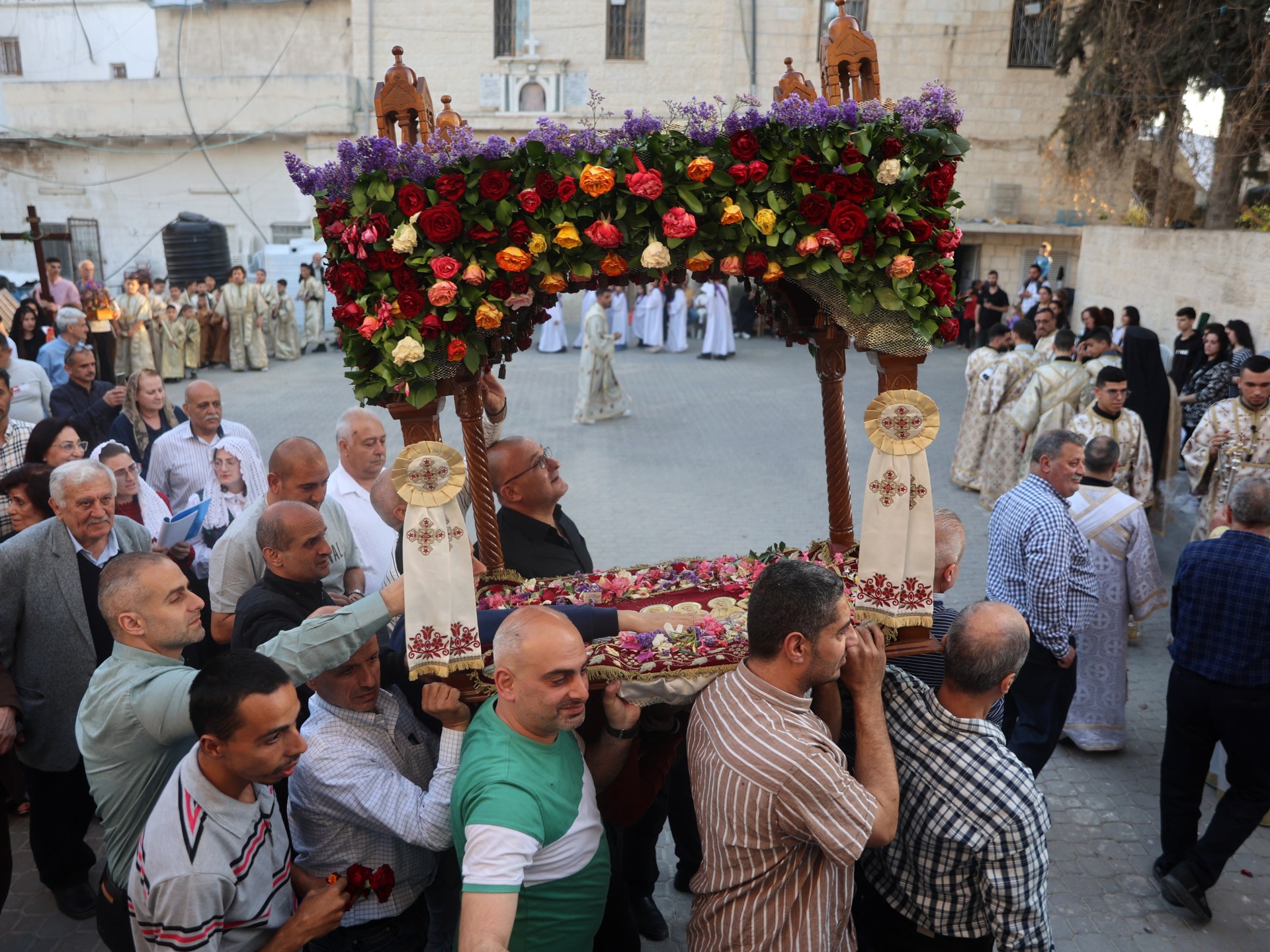
Palestinian Christians in Gaza and the occupied West Bank are holding temperate gatherings leading up to Easter.
Israeli strikes on Gaza have killed at least 58 Palestinians in one day as Christians mark Good Friday in the besieged and bombarded enclave.
More than half of the casualties were in Gaza City and northern Gaza, but deadly attacks took place across the Palestinian Strip, including in Khan Younis and Rafah in the south, medical sources told Al Jazeera on Friday.
The Israeli military said troops were operating in the Shaboura and Tal as-Sultan areas near Rafah, as well as in northern Gaza, where Israel has taken control of large areas east of Gaza City.
On Friday, Israel’s defence minister, Israel Katz, repeated that Israel intended to achieve its war aims.
“The [Israeli army] is currently working towards a decisive victory in all arenas, the release of the hostages, and the defeat of Hamas in Gaza,” he said in a statement.
Palestinian Christians in Gaza however continued to hold temperate gatherings leading up to Easter, amid the attacks.
Speaking to Al Jazeera from a local church, Ihab Ayyad said he used to gather with other congregants and visit his neighbours’ homes every year to celebrate.
“This year, we didn’t make the visits because of the total destruction everywhere, as the [Israeli] occupation forces have levelled most of the houses of my relatives and my neighbours,” Ayyad said. “A lot of my relatives and neighbours were martyred or displaced in different places. We haven’t celebrated because we feel very sad.”
Ramez al-Soury said he used to travel out of Gaza to Bethlehem or Jerusalem for the holy week.
But now, an “atmosphere of war” permeates Gaza. “The death smell is everywhere. The smell of killing and destruction is putting a lot of pressure on us,” he said.
Reporting from Gaza City, Al Jazeera’s Hani Mahmoud said the Christian community is holding onto their faith and has gathered at one of the oldest churches in the world in Gaza – not in defiance but in devotion.
“In Gaza, Good Friday is the power of faith and the quiet strength of those who still believe in peace even when the world around them is nothing but a stage filled with violence and death,” he said.
West Bank settler violence
Rituals to mark Good Friday and Easter have also been held in the occupied West Bank.
There are about 50,000 Palestinian Christians in the region. Israeli authorities, however, require them to acquire permits to travel to Jerusalem, making it difficult for many to join those celebrations.
Moreover, Israeli settlers and the military also attacked Palestinian people on their land in the town of Biddya, in the Salfit governorate in the occupied West Bank, according to Al Jazeera Arabic on Friday, tempering the celebrations.
The Palestine Red Crescent said that a Palestinian was injured in the attack.
Local sources also told Al Jazeera Arabic that dozens of settlers stormed Jabal al-Urma, a hill in the town of Beita in the Nablus governorate, under the protection of the Israeli army.
Settlers are Israeli citizens who live illegally on private Palestinian land in the occupied West Bank and East Jerusalem.
Israeli settler and military violence has soared across the West Bank – particularly in the north of the territory – since the war on Gaza began in October 2023. The United Nations has said this violence has displaced roughly 40,000 Palestinians since Israel began a new military operation in the occupied West Bank in January.
Middle East
Allies say Ghannouchi ‘unjustly’ held, as he marks 2 years in Tunisian jail | Human Rights News
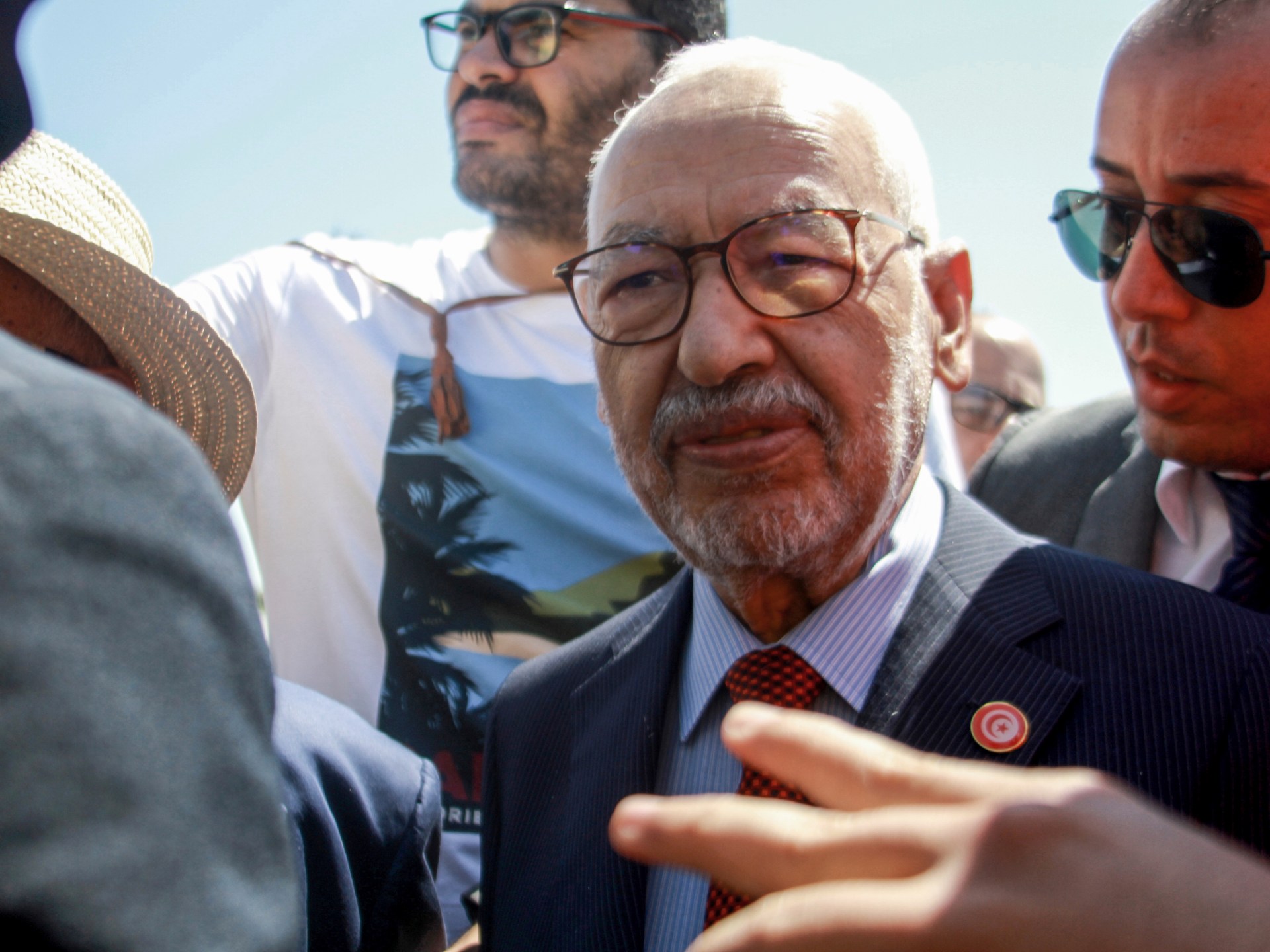
International Committee for Solidarity with Rached Ghannouchi decries ‘repressive campaign’ against Ennahdha party leader.
Marking the second anniversary of the arrest of Tunisia’s prominent opposition leader Rached Ghannouchi, an international committee formed last year to raise awareness about his imprisonment says he is being held “unjustly” and on “trumped-up charges”.
The International Committee for Solidarity with Rached Ghannouchi called for the immediate release of the imprisoned Ennahdha party leader and former speaker of Tunisia’s parliament.
In a statement on Thursday, it said that more than 15 cases have been brought against Ghannouchi, and “several unjust convictions and sentences” have been issued.
The most recent of these was a 22-year prison sentence issued in February on charges that included plotting against state security – a case “to which he has no connection”, the committee said.
Earlier this year, Ghannouchi was also sentenced to three years for accusations that his party received foreign contributions.
The 83-year-old, who has been the main rival of Tunisian President Kais Saied, was arrested in April 2023 and sentenced to one year in prison on charges of incitement.
He has been a vocal critic of Saied, and became the highest-profile figure to be arrested in the continuing consolidation of power by the president who was elected in 2019 and has overseen a wave of repression and legal reforms that have expanded his rule.
“These unjust trials and sentences take place within the context of a widespread repressive campaign led by Kais Saied’s regime, which is targeting opposition voices from all backgrounds, repressing organised action in all its forms, controlling the media and civil society, and silencing critical voices,” the committee said in its statement.
It said Saied’s government has to “exploit the judiciary as a tool for settling political scores”.
‘An era of political prisoners’
The committee’s statement comes just days after United States-based Human Rights Watch (HRW) called on the Tunisian government to halt its crackdown on opposition and free all detainees.
The rights group said arbitrary detention was being used to eliminate dissent in Tunisia amid a trial of prominent opposition figures – including Ghannouchi – on conspiracy charges.
In a report released Wednesday, HRW reinforced opposition leaders’ concern over what they call the authoritarian rule of Saied since he dissolved parliament in 2021 and began ruling by decree.
The opposition described Saied’s move as a coup. He has denied such accusations, professing he would not become a dictator but rather is trying to rescue the North African country from political chaos and rampant corruption.
The report said Tunis had turned arbitrary detention into a cornerstone of repressive policy.
“Saied’s government has returned the country to an era of political prisoners, robbing Tunisians of hard-won civil liberties,” said Bassam Khawaja, deputy Middle East and North Africa director at HRW.
Since 2023, authorities have arrested dozens of prominent political opposition figures as well as journalists, activists and lawyers in a crackdown critics say has undermined the democracy gained in the 2011 Arab Spring popular uprising.
Middle East
At least one killed by Israeli strike near Sidon in southern Lebanon | Israel attacks Lebanon News
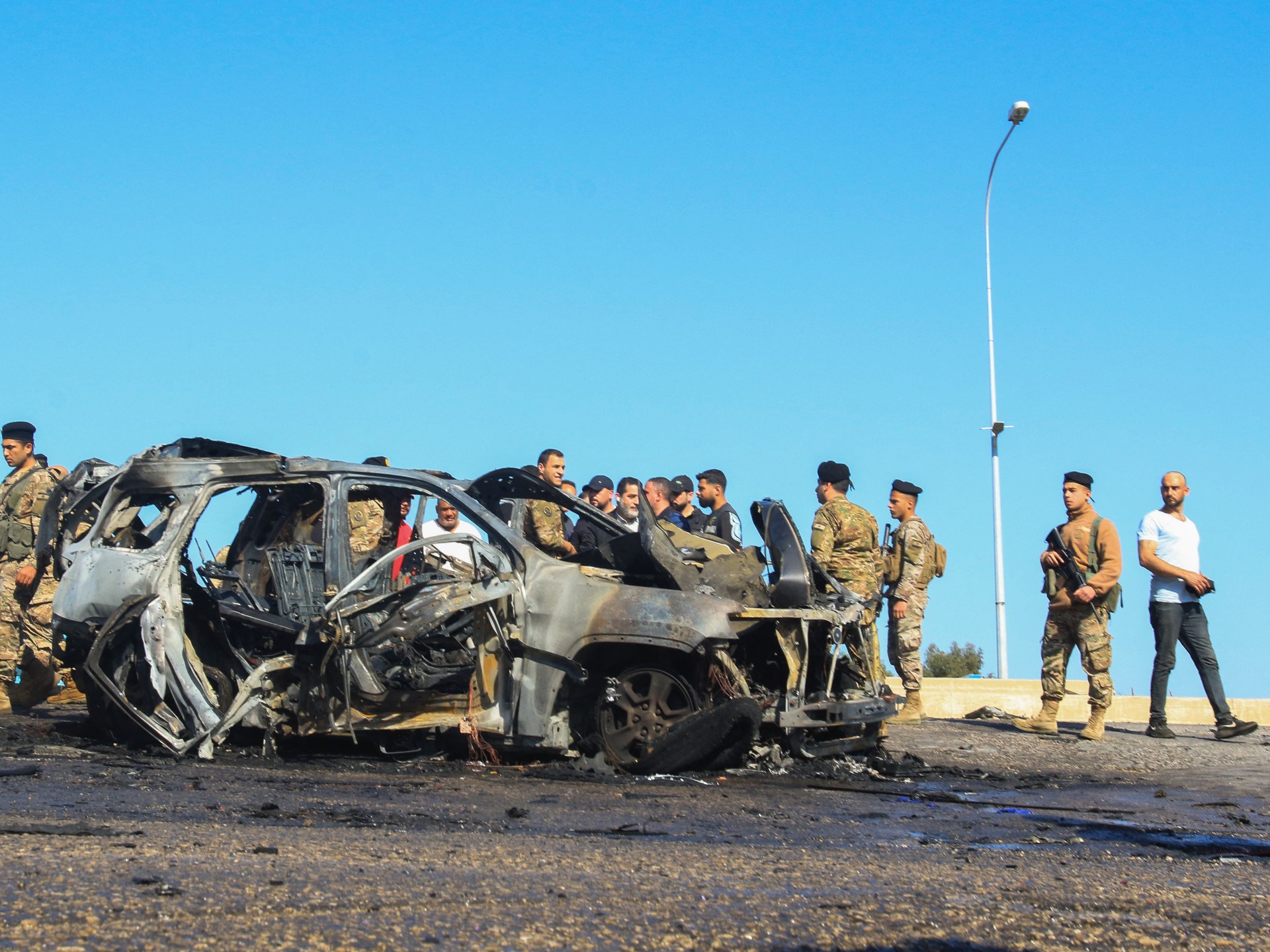
Israel has continued to conduct near-daily strikes in Lebanon despite a ceasefire with Hezbollah last November.
Lebanon’s Health Ministry has said an Israeli strike on a vehicle near the southern coastal city of Sidon killed one person, with Israel announcing that an attack in the same area had targeted a Hezbollah operative.
Despite a ceasefire last November that sought to halt more than a year of conflict between Israel and Iran-backed Hezbollah, Israel has continued to conduct near-daily strikes in Lebanon.
“The attack carried out by the Israeli enemy against a car on the Sidon-Ghaziyeh road resulted in one dead,” a Health Ministry statement said on the fourth consecutive day of Israeli attacks in the south on Friday.
An AFP journalist said the Israeli attack hit a four-wheel-drive vehicle, sending a pillar of black smoke into the sky.
At the scene of the strike, members of the security forces stood guard as a crowd gathered to look at the charred remains of the vehicle after firemen put out the blaze.
Israel’s military later said it had killed a member of Hezbollah in the area.
“Earlier today [Friday], the IAF [Israeli air force] conducted a precise strike in the area of Sidon and eliminated the Hezbollah terrorist Muhammad Jaafar Mannah Asaad Abdallah,” a military statement said.
It added that Abdallah was “responsible, among other things, for the deployment of Hezbollah’s communication systems throughout Lebanon”.
The Israeli military also said it was behind other attacks this week that it claimed had killed Hezbollah members.
Civilians killed since ceasefire
Hezbollah, significantly weakened by the war, says it is adhering to the November ceasefire, even as Israeli attacks persist.
The United Nations says at least 71 civilians have been killed by Israeli forces in Lebanon since the ceasefire.
Thameen al-Kheetan, spokesperson for the UN Office for the High Commissioner for Human Rights (OHCHR), said on Tuesday that the death toll included 14 women and nine children. He called for investigations into “each and every military action where civilians are killed”.
Under the November ceasefire, Israel was to withdraw all of its forces from south Lebanon and Hezbollah was to pull its fighters back north of Lebanon’s Litani River and dismantle any remaining military infrastructure in the south. But despite the deal, Israeli troops have remained at five south Lebanon positions that they deem “strategic”.
Lebanon’s army has been deploying in the south near the border in regions where Israeli forces pulled back. Lebanese President Joseph Aoun told Al Jazeera on Monday that the army was “dismantling tunnels and warehouses and confiscating weapons bases” south of the Litani “without any problem from Hezbollah”.
On Thursday, a senior Hezbollah official told the Reuters news agency the group is ready to hold talks with the Lebanese president about its weapons if Israel withdraws from southern Lebanon and stops its strikes.
Separately, a Hezbollah official said on Friday that the group categorically refused to discuss handing over its weapons to Lebanon’s army unless Israel withdrew completely from the south and stopped its “aggression”.
“Wouldn’t it be logical for Israel to first withdraw, then release the prisoners, then cease its aggression … and then we discuss a defensive strategy?” Wafiq Safa said in an interview with Hezbollah’s Al Nur radio station.
“The defensive strategy is about thinking about how to protect Lebanon, not preparing for the party to hand over its weapons.”
-

 Conflict Zones2 days ago
Conflict Zones2 days agoHaiti in ‘free fall’ as violence escalates, rights group warns | Armed Groups News
-
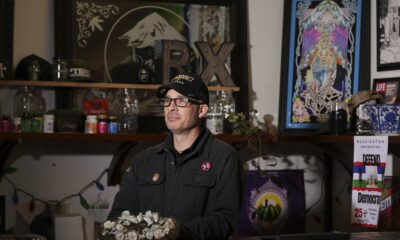
 Lifestyle2 days ago
Lifestyle2 days agoBelievers say microdosing psychedelics helps them. Scientists are trying to measure the claims
-
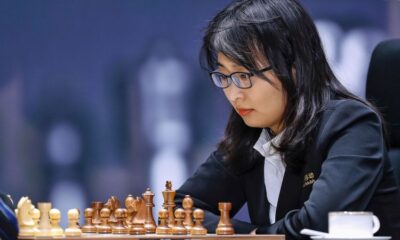
 Sports2 days ago
Sports2 days agoJu Wenjun: Chinese grandmaster makes history by winning fifth Women’s World Chess Championship
-

 Lifestyle2 days ago
Lifestyle2 days agoPicking a team from bars to beam and hoping for 10s: Fantasy leagues in gymnastics are a thing
-
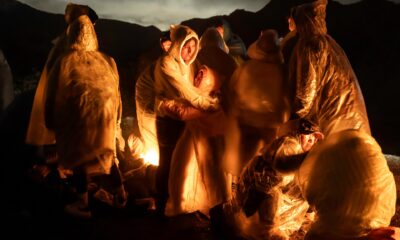
 Middle East2 days ago
Middle East2 days agoPalestinian photographer Samar Abu Elouf wins world’s top photo prize | Gaza News
-
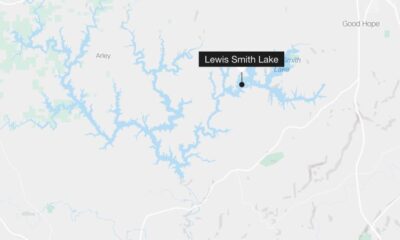
 Sports2 days ago
Sports2 days agoMajor League Fishing: Three people dead following boating crash on Lewis Smith Lake
-

 Sports2 days ago
Sports2 days agoArsenal reaches first Champions League semifinal in 16 years, with Inter Milan also advancing
-
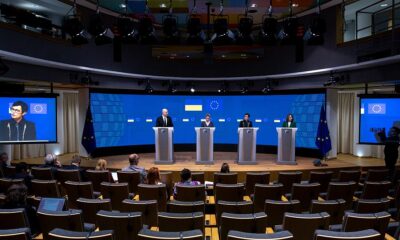
 Africa2 days ago
Africa2 days agoEuropean Union announces new asylum measures



